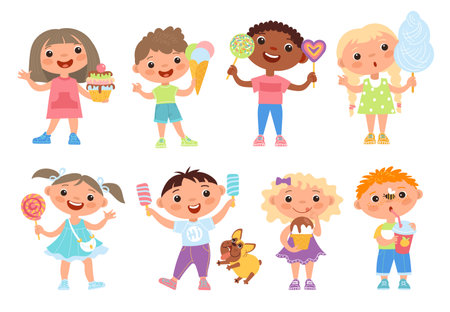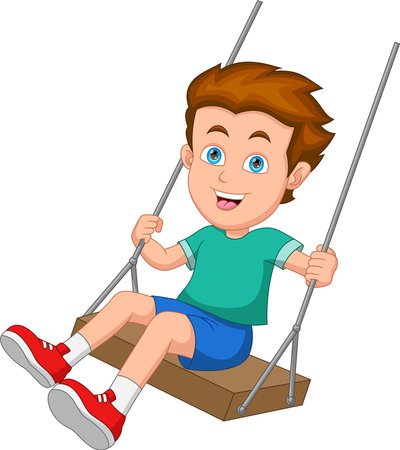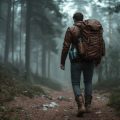Embracing Outdoor Learning
Camping offers an incredible opportunity to turn family time in the great outdoors into a powerful learning experience for your kids. Away from screens and routines, nature becomes a hands-on classroom where children can explore, experiment, and discover. Whether you’re hiking a trail, setting up a tent, or watching the stars, every moment is a chance for real-world learning that goes far beyond what they’ll find in textbooks. By embracing outdoor learning during your camping trips, you help your kids build curiosity, develop problem-solving skills, and foster a lifelong love for science and nature. Plus, these shared adventures create lasting memories and encourage your children to appreciate and care for the environment around them.
Nature Exploration and Observation
One of the best ways to make camping educational for your kids is by encouraging them to explore and observe the natural world around them. Nature exploration isn’t just a walk in the woods—it’s an adventure where every leaf, bug, or bird can spark curiosity and learning. Start by teaching your kids how to identify local plants and animals. Bring along a simple field guide or download a nature identification app, and challenge your kids to spot different species during your hikes. Turn it into a game with a checklist, rewarding them for each new discovery.
Fun Ways to Explore the Environment
| Activity | Description | Educational Benefit |
|---|---|---|
| Plant & Animal Identification | Use guides or apps to recognize different trees, flowers, birds, and insects. | Builds observation skills and knowledge of local biodiversity. |
| Ecosystem Observation | Explore ponds, forests, or meadows; discuss how living things interact in these habitats. | Introduces ecology and concepts like food chains and habitats. |
| Nature Journaling | Draw or write about findings in a journal—note weather, animal behaviors, or plant changes. | Encourages mindfulness, improves writing/drawing skills, and boosts memory retention. |
Tips for Engaging Your Kids
- Make it interactive: Let kids use magnifying glasses to inspect leaves or bugs up close.
- Create scavenger hunts: List items for kids to find (a pinecone, feather, acorn) to keep them motivated.
- Ask open-ended questions: Encourage your child to think critically by asking why certain animals live in specific areas or how plants grow in different conditions.
- Share discoveries as a group: After exploring, gather around the campfire and let everyone share what they found most interesting that day.
The Value of Nature Journaling
Nurture creativity and scientific thinking by giving each child their own notebook for nature journaling. Encourage them to sketch what they see, write stories about their favorite animal encounter, or record the sounds they hear at night. This not only makes the camping experience more memorable but also helps develop observation skills and a deeper connection with nature. With these engaging activities, you’ll turn every camping trip into an unforgettable outdoor classroom for your kids.

3. Science Experiments at the Campsite
Transform your family camping trip into a hands-on science adventure by incorporating simple, fun, and safe experiments that your kids will love. Camping is the perfect opportunity to make science come alive outside the classroom. Here are some easy activities you can try right at your campsite.
Stargazing: Exploring the Night Sky
The clear, dark skies away from city lights are ideal for stargazing with your kids. Bring along a star chart or download a stargazing app to help identify constellations and planets. Encourage your children to keep a sky journal where they can sketch what they see and note any shooting stars or satellites. This activity not only teaches astronomy but also inspires curiosity about space and our universe.
Testing Water Quality
If you’re camping near a lake, river, or stream, testing water quality is an engaging way to introduce environmental science. You can purchase simple water testing kits from most outdoor or science stores, which allow kids to check pH levels, clarity, and temperature. Discuss why clean water is important for wildlife and people, and talk about ways we can help protect these natural resources.
Building a DIY Weather Station
Help your kids become little meteorologists by building a basic weather station using everyday items. Use a plastic bottle to create a rain gauge, hang a ribbon on a stick to measure wind direction, and record daily temperatures with a thermometer. Have your children predict the weather based on their observations and compare their predictions with local forecasts. This hands-on project helps them learn about weather patterns and data collection in an exciting way.
Safety Tips for Outdoor Science
Always supervise your kids during experiments, especially near water or when it’s dark outside. Choose age-appropriate activities and bring any necessary safety gear such as flashlights or gloves. Most importantly, encourage questions and let your children’s curiosity lead the way—camping is all about discovery!
4. Outdoor Survival Skills and Safety
Camping is an excellent opportunity for kids to develop practical outdoor survival skills that foster confidence, independence, and responsibility. Teaching your children these essential abilities doesn’t just make camping safer; it also turns each adventure into a hands-on learning experience. Here are some key survival skills and safety principles you can cover during your trip:
Essential Outdoor Skills for Kids
| Skill | What to Teach |
|---|---|
| Map Reading & Navigation | Show your kids how to read a basic map, recognize landmarks, and use a compass. Have them help plan hiking routes and identify locations on the trail. |
| Basic First Aid | Demonstrate how to treat minor cuts, scrapes, or insect bites. Teach when to seek adult help and how to use items in a first aid kit. |
| Campfire Safety | Explain safe ways to build, maintain, and extinguish a campfire. Emphasize never leaving a fire unattended and keeping water or sand nearby. |
| Leave No Trace Principles | Discuss the importance of respecting nature by cleaning up campsites, disposing of waste properly, and minimizing impact on wildlife. |
Why These Skills Matter
By learning these skills, kids not only stay safe but also gain valuable life lessons about teamwork, decision-making, and environmental stewardship. Encourage them to practice these abilities under your supervision until they feel confident. Remember, every moment spent teaching these basics is an investment in their self-reliance for future adventures.
5. Incorporating Games and Challenges
Adding a playful twist to your camping trip can transform learning into an adventure for your kids. Educational games, scavenger hunts, and creative challenges are fantastic ways to encourage teamwork, spark curiosity, and strengthen problem-solving skills—all while having a blast in the great outdoors.
Scavenger Hunts: Nature’s Treasure Hunt
Create a scavenger hunt list featuring local plants, rocks, insects, or animal tracks. Give each child a checklist and see who can find the most items. You can add fun clues that require basic research or observation, teaching kids to recognize different species and appreciate biodiversity around them.
Teamwork-Based Challenges
Set up activities that require cooperation, like building a simple shelter from branches or creating a nature-inspired obstacle course. These team efforts not only build communication skills but also teach kids about resourcefulness and the importance of working together toward a common goal.
Problem-Solving Games
Introduce classic outdoor games with an educational twist. For example, play “20 Questions” using only things found in nature, or set up puzzles where kids need to figure out how to purify water or identify edible plants (with adult guidance). These exercises sharpen their critical thinking while making science concepts more tangible.
Sparking Curiosity Through Play
Use challenges that encourage curiosity, such as asking children to predict weather changes based on cloud shapes or leading a nighttime “sound safari” where they identify animal calls. When kids learn through hands-on play, they’re more likely to remember what they discover—and have fun along the way!
6. Making Camping a Family Tradition
Turning camping into an ongoing family tradition is one of the best ways to foster curiosity and a lifelong love of nature in your kids. Instead of treating camping as a one-off adventure, make it a regular event—whether that means every summer or even just once a year. This consistency builds anticipation and gives children something to look forward to, while also creating lasting memories together.
Keep Learning Fresh Each Trip
To keep the experience educational, try choosing different campgrounds, parks, or types of environments for each trip. Explore mountains one year and lakes the next. With each new location, encourage your kids to research local wildlife, plants, and natural features ahead of time. You can even assign simple “nature detective” tasks where they spot certain birds or identify trees unique to that region.
Create Traditions with Purpose
Establish fun traditions that have an educational twist. For example, start a family field journal where everyone records interesting things they observe. Collect leaves or rocks (where allowed), then identify and learn about them together at home. Share stories around the campfire about past trips or interesting facts you’ve learned about nature and science over the years.
Encourage Curiosity Beyond the Campsite
After returning home, keep the spirit of discovery alive by following up on questions raised during your trip. Did your child spot an unfamiliar bird? Look it up together! Make time for local hikes or backyard stargazing between camping trips to reinforce what you’ve learned. This continuity helps kids see that learning about nature doesn’t have to end when the tent comes down.
Let Your Kids Take the Lead
As your children grow, involve them more in planning future camping adventures. Let them choose destinations, help pack gear, or decide which activities to focus on during each trip. Giving them ownership boosts their confidence and motivates them to stay curious about the natural world.
Build Lifelong Connections
By making camping an ongoing family tradition centered around exploration and learning, you’re giving your kids skills and memories that last a lifetime. Not only will they gain knowledge about science and nature—they’ll develop a genuine appreciation for the outdoors that can be passed down for generations.


